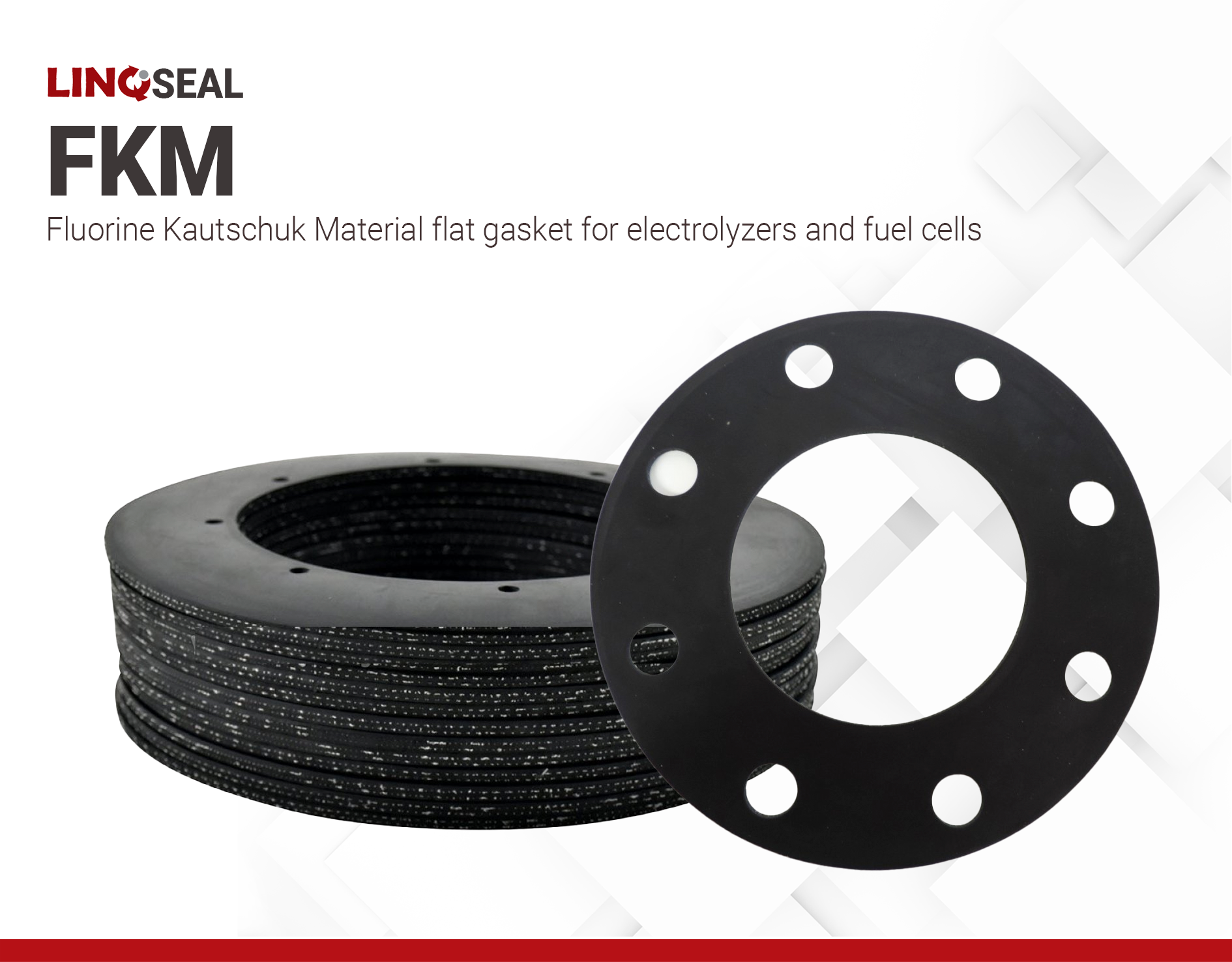LINQSEAL GS-FKM
- Retains elasticity at high temperature
- Highest fluid resistance among commercial rubbers
- Outstanding resistance to heat, oxidation, and weathering
Product Description
LINQSEAL GS-FKM (Viton®) gaskets are composed of a fluorocarbon rubber, which stands out as a premier elastomer due to its remarkable chemical resistance and ability to withstand harsh environments. These gaskets offer stability over a wide temperature range: –50/+260 °C. FKM excels in applications where resistance to chemicals, ozone, and extreme temperatures is crucial. Its low compression set and good anti-aging characteristics make it durable over time. Notably, FKM gaskets outperform cheaper alternatives like nitrile or neoprene rubbers, providing enhanced heat and chemical resistance. With low permeability, especially in oxygenated automotive fuels, and excellent electrical properties in low voltage applications, LINQSEAL GS-FKM gaskets offer a reliable solution for various industrial needs.
Custom LINQSEAL GS-FKM gaskets can be tailored precisely to your specifications and drawings. The thickness ranges from 0.5 to 5.0 millimeters. The maximum dimensions are 1500 × 1500 mm2, while the minimum dimensions are 100 × 100 mm2.
Key Features:
- Exceptional resistance to different fluids: aliphatic and aromatic hydrocarbons, halogenated fluids, and strong acids.
- High resistance against compression set, ensuring sealing performance and longevity unparalleled by non-fluorinated elastomers.
- High temperature stability (–50 °C to 260 °C)
- Low gas absorption rate
Highly Recommended As:
- Sealing material in the aerospace sector for auxiliary power units, connectors, line fittings, hydraulic actuators, pumps, valves, and oil reservoirs.
- Seal in automotive components such as fuel injection systems, cylinder heads, intake manifolds
- Flat gaskets for water electrolyzers and fuel cells
Technical Specifications
| General Properties | |||||
| Density (g) | 1.90–2.00 g/cm3 | ||||
| Mechanical Properties | |||||
| |||||
| Elongation Elongation Elongation is the process of lengthening something. It is a percentage that measures the initial, unstressed, length compared to the length of the material right before it breaks. It is commonly referred to as Ultimate Elongation or Tensile Elongation at break. | 250 % | ||||
| Thermal Properties | |||||
| Operating Temperature | –50 to 260 °C | ||||



